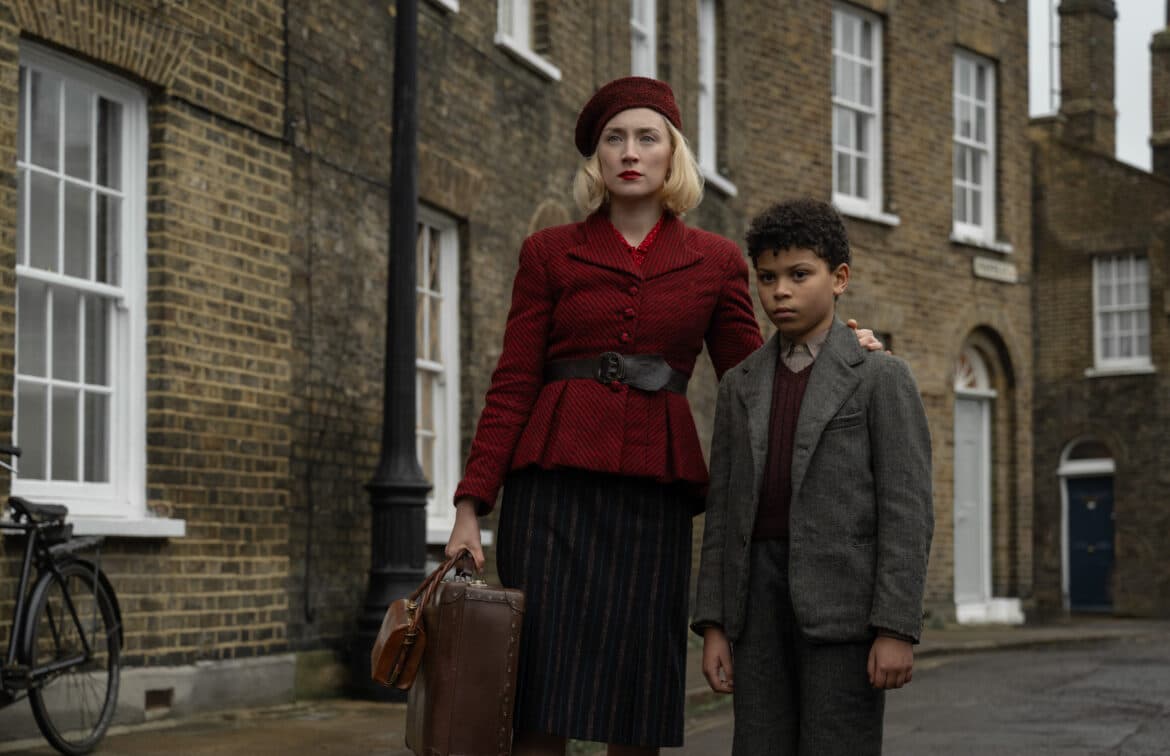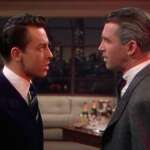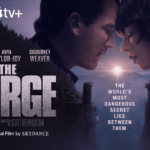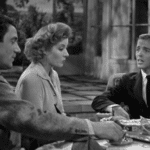Steve McQueen returns to historical storytelling with Blitz, his first feature since the acclaimed Small Axe anthology. This time, he focuses on the poignant tale of a mother and son navigating love, loss, and survival amidst the chaos of wartime London. Blending themes of race, resilience, and humanity, McQueen delivers a film that feels both deeply personal and universally resonant.
McQueen’s film Blitz begins with Rita, played by Saoirse Ronan, and George her son, played by Elliott Heffernan, as they spend some playful moments together in their apartment. Sirens then go off and Rita, George, and Rita’s father, must escape for shelter. They try to enter the underground, then shut off to citizens, and eventually do, with Rita’s father Gerald, played by Paul Weller, telling her she must send him off. Rita does; however, George, upset at having to leave the mother he loves, rejects her at the railroad station, leaving Rita broken hearted, and George determined to return to his mother. Unbeknownst to Rita, George leaves his train to safety, and sets off on a journey home that will show him some of the best and worst of humanity, in an already strained London, while Rita struggles on her own without George as she tries to survive in this new terror filled world.
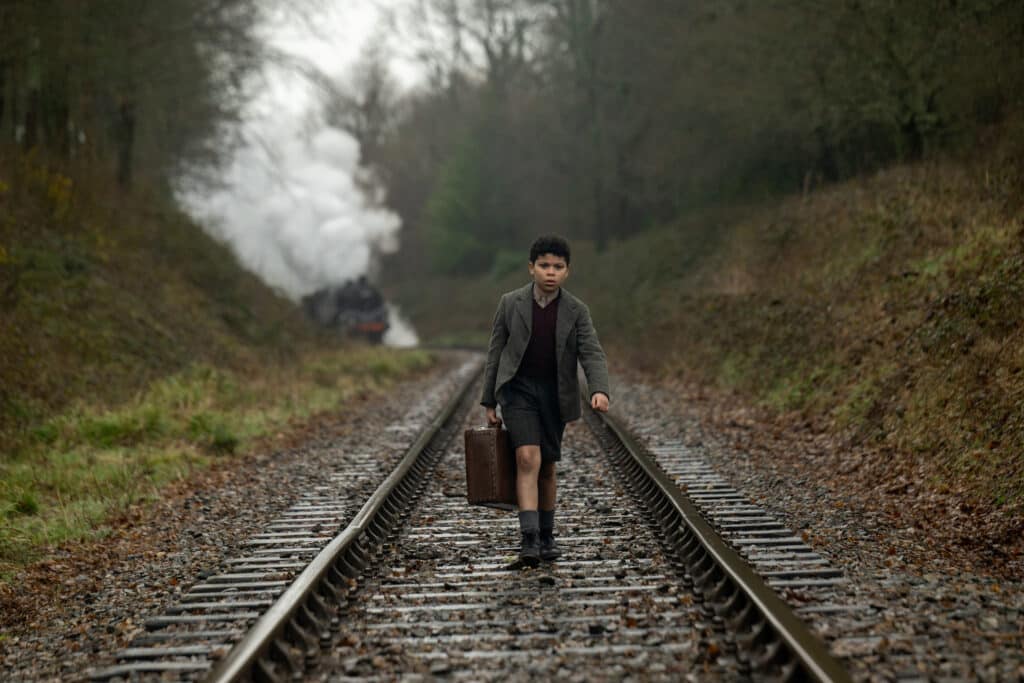
Elliott Heffernan in “Blitz,” now streaming on Apple TV+.
Blitz is the kind of film that from its opening scene immediately feels cinematic, to the point where you wish it was airing in theaters instead of streaming. Even with the screen limitations, Steve McQueen used his tools to the fullest which quickly helps immerse the viewer into the world of London in 1941, during the Blitz, when Londoners had to make the difficult choice to part with their kids who were sent to the countryside (non-targets of the Blitz) for safety.
The central pair portrayed by Ronan and Heffernan captivated me from the start, as they gave truly award worthy performances. Ronan I always expect amazing work from, but together they both were simply delightful. Acting as a young child is often difficult, and can lead to mixed results; however, Heffernan’s acting helped us believe that the characters’ love came across as genuine, and George’s stoic determination, often masking his own fear, was so well portrayed by young Heffernan it was a marvel he isn’t an actor more senior.
The film doesn’t keep them together for too long however, and McQueen’s magic for pacing, cinematography, and scene setting begins to show even more, as he expertly inserts (and at times, tragically removes), side adventures and new characters who engage for Rita or George. Just as the Blitz is made to feel real – looming overhead at all times – so do these characters George encounters, including three fellow stowaway brothers, a young Nigerian policeman, and the treacherous, Dickensian, Albert played excellent as always by Stephen Graham. Rita herself too also bonds with the ladies at her factory, whose own attempt at living life to the fullest when you may not know if tomorrow’s promised felt very real.
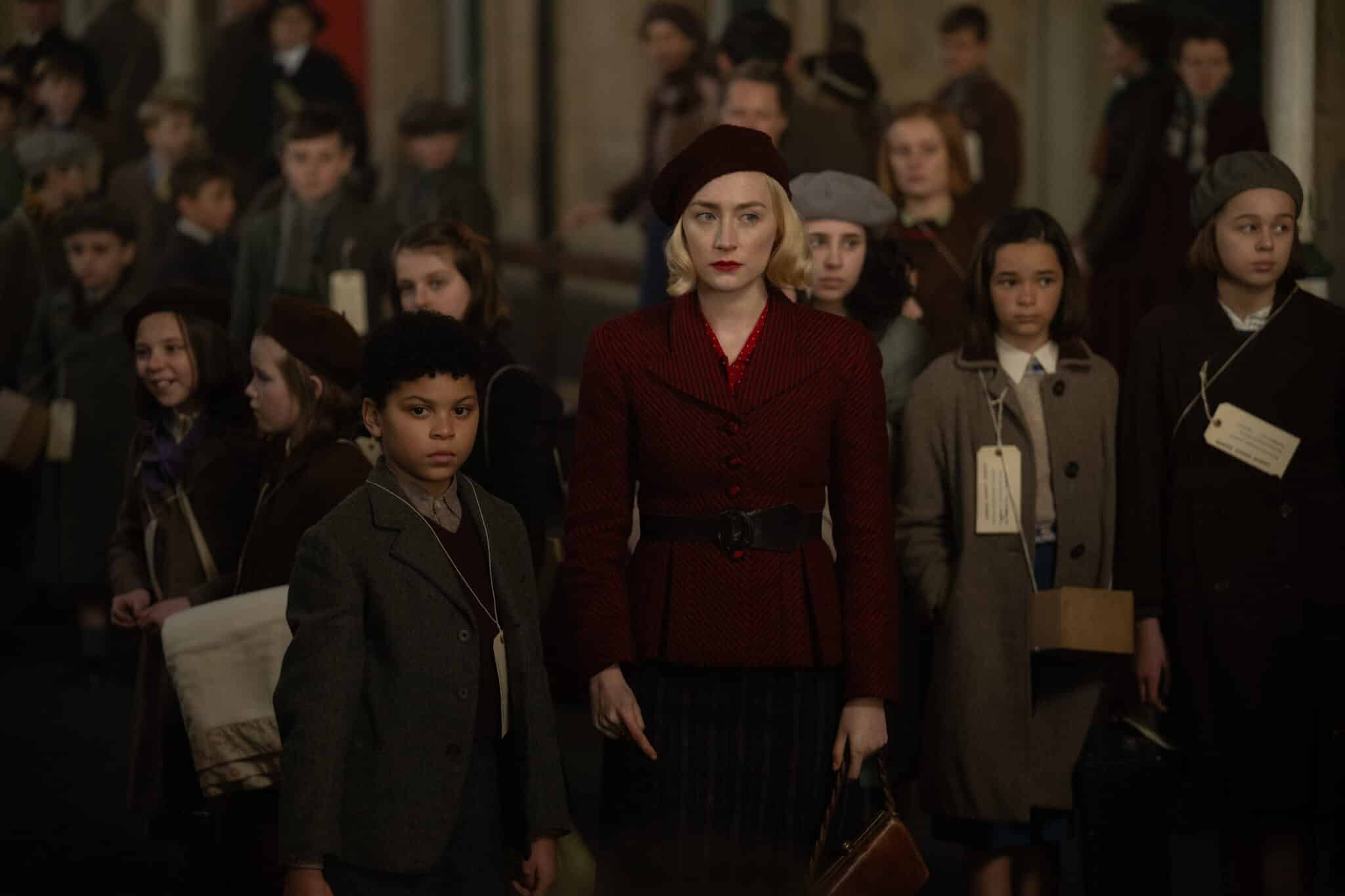
Elliott Heffernan and Saoirse Ronan in “Blitz,” now streaming on Apple TV+.
In particular, this is a film about the transformation of George who is forced to mature very quickly, for his own safety and survival. McQueen’s expert cinematography and scene setting helps capture this transformation with subtlety that almost passes you by on first watch. Key scenes however, including a masterful moment with a puppet master where you see George take in the full scene, clue you in to George’s lost innocence, and say so much more than words ever could.
Perhaps the only scene where McQueen dropped subtlety was the portrayal of the Jazz club, where we see a band leader, and singer, entertain a decadent crowd out for a night on the town. Till this point McQueen’s largely kept the bombs at a distance, showcasing an image of the bombs close-up in the air to show them looming but also still far removed. Only in this instance are those two images brought together, and though it feels perhaps discordant it also feels like this is where McQueen naturally was leading up to.
McQueen’s Blitz achieves what the best historical dramas do: telling an intimate story that reflects larger, universal themes. By capturing on screen a range of responses to the Blitz—whether it’s the stoic resilience of the British, opportunistic looters, or those simply trying to live their life one day at a time—McQueen immerses us in the chaos and humanity of wartime London. For those of us fortunate enough to live in relative peacetime, McQueen’s Blitz offers a profound glimpse into the fears, hopes, and dreams of his characters, reminding us of the enduring resilience of the human spirit in the most trying of times.
Blitz is now streaming on Apple TV+. Let us know what you think of the film in the comments!
